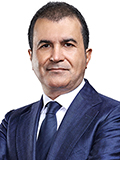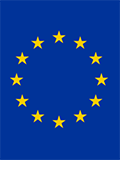| If you can't view the email, please click here. |
|
|
|
Spring 2018 Vol. 17 No. 1
|
|
From the Desk of the Editor
Süreya Martha Köprülü

“This issue of TPQ comes at a time when relations between Turkey and the EU are at a historical low point. The sources of tension are manifold, and have been compounded by a constellation of transformations in Turkey, Europe, and the international system. The global upswing in far-right populist movements, isolationism, the conflict in Syria and its humanitarian crisis, and the threat of ISIS have caused societies in both regions to turn inwards. Furthermore, nationalist-driven politics propagated by EU capitals and Ankara have played a large role in fueling prejudices and eroding common socio-cultural reference points.”
“In this issue, our authors reflect on the points of contention in the Turkey-EU relationship and offer visions for future engagement. Collectively, they convey that despite heated rhetoric from both sides, Turkey and the EU share common interests and challenges, which oblige them to build a new framework for cooperation. The fragility of the international system and the myriad of security risks that Turkey and the EU face add impetus to this priority.”
|
|
The Future of Turkey-EU Relations in a Time of Global Uncertainty
Ömer Çelik

“Europe is experiencing a ‘period of extremism’ in which universal values, in general, are being eroded because the parties that claim to represent the moderate position are engaging in politics that use xenophobic, Islamophobic, and isolationist rhetoric.”
“Turkey’s EU membership is more important than ever given the new dynamics and changes in the world order. It is obvious that the international system needs Turkey-EU cooperation in order to solve a number of global problems, ranging from the economy and energy to foreign policy, as well as discrimination and terrorism within the context of our common values. Therefore, it is essential that Turkey-EU relations reach a certain level of strength and the EU develop a fair and principled approach towards Turkey.”
“For Turkey, the most important priority is opening the way to accession negotiations. However, the EU has not fulfilled its commitment to complete preparations for beginning negotiations on the chapters blocked by Cyprus. The accession negotiations are the backbone of Turkey-EU relations. It is impossible to realize the full potential of the relationship until there is progress in this area.”
|
|
|
EU-Turkey Ties on the Brink?
Marietje Schaake

“Both the constitutional amendments and the purge after the failed coup attempt have severely eroded European popular support for Turkey’s EU accession. In the European Parliament, we have pointed out on several occasions, that the implementation of the constitutional amendments violates the Copenhagen criteria and would make Turkey ineligible to maintain candidacy status to join the EU.”
“If Turkey is interested in an upgraded Customs Union, it should expect negotiations to be laced with strong conditionality on human rights and the rule of law. Such conditionality principles should also underline for the population in Turkey that the EU is not only driven by interests but also remains committed to the rights and freedoms of people.”
“What is essential for Europe is to signal to the population of Turkey that complicated relations with the government do not come at the expense of the population. Instead, ensuring Erasmus+ participation and other people-to-people contacts and exchanges should be a European priority. Access to such opportunities should be inclusive and not politicized.”
|
|
|
Turkey’s EU Odyssey: Problems and Prospects
Ayhan Zeytinoğlu

“Despite all the turmoil and unexpected disturbances in Turkey-EU relations over the last year, Turkey is a vital player in the European scene and an irreplaceable partner in the execution of several EU policies such as security, defense, trade, energy, and migration. Because of their mutual dependence and need for engagement in these important areas, Turkey and the EU will continue to work together and find ways for deepening and widening their relations.”
“The modernization of the Customs Union will facilitate Turkey’s alignment and integration to the EU single market by way of harmonization into EU standards and norms not only in industrial production but also services, agriculture, and public procurement. Despite the difficulties and challenges that this process is bound to create for the Turkish economy, such change will contribute to Turkey’s rupture from the ‘middle-income trap,’ and allow it to join the league of countries with higher value-added production and exports.”
|
|
|
The “D”s in Turkey-EU Relations: Some Reflections
Gül Günver Turan

“Observing Turkey’s politics and economics over time, certain traits never seem to change regardless of the government in power. We have always lived through periods of contractions and expansions in our economy, usually described as a liberal economy with a somewhat free market for goods, services, and capital.”
“Many European leaders agree that isolating Turkey and cutting ties with it is not the solution. The EU needs to support civil society in Turkey, the business circles should continue to work together, and the member states, as well as the commission, should collaborate on subjects related to security, economy, and culture until Turkey’s democracy hopefully reverts to accepted norms.”
|
|
|
Transactional by Default: EU-Turkey Relations in Search of a New Rationale
Josef Janning

“Even a Turkey that fulfills all Copenhagen criteria but demands special status in the EU due to its demography, geography, and economy would not strengthen but politically weaken the EU. Seeking to steer or change the integration process from the political margins will cause friction and hamper progress, and could eventually undermine the support for EU membership at home—this is the lesson of Britain’s 45-year membership.”
“The refugee deal between Turkey and the EU is an almost perfect illustration of the current condition of relations. It is a deal which meets short and medium-term interests of both sides, but one that does not address long-term policies to resolve the refugee crisis.”
|
|
|
Preparing for a New Blueprint in EU-Turkey Relations?
Samuel Doveri Vesterbye

“Diplomatically, Turkey’s difficult relationship with the EU predates 2013 by over a decade. From the inception of the Turkish accession process, broken promises and the continued freezing of chapters created a set of distorted incentive mechanisms, which continue to affect any attempts at building trust, reconciliation, and improved relations.”
“Turkey’s accession process continues to distort incentive mechanisms, which is leading to conflictual relations with the EU. Whereas a new structure is needed to replace an increasingly void accession process, each attempt at restoring normalized relations is being politicized. The Customs Union provides a viable replacement (or complementary) option, but is likely to face continued obstruction unless Ankara opens up to more serious engagements with Europe. Other areas like visa liberalization and migration equally face political maneuvering, which highlight the difficulty in finding new openings for improved relations.”
|
|
|
Accession in Abeyance: Finding a Way Forward for Ankara and Brussels
Jan Marinus Wiersma

“Signals of goodwill from Ankara such as the release of political prisoners, proper judiciary procedures for those arrested, steps towards a more democratic government might convince some in Brussels to give new impetus to accession talks such as opening the chapters 23 and 24 on the Rule of Law and Fundamental Rights. However, would President Erdoğan take such steps without the guarantee of France and Cyprus lifting existing blockades or Germany withdrawing its veto on the opening and closing of new chapters?”
“It is too easy to blame it all on President Erdoğan. The EU has been an unreliable partner and remains internally divided about how to deal with Erdoğan’s Turkey and on how much emphasis to put on human rights and respect for the rule of law. Most member states do not want to formally suspend the negotiations with Turkey to avoid a political crisis.”
|
|
|
Turkey and the V4: Paths for Current and Future Cooperation
Tamás Kozma & Péter Dobrowiecki

“In terms of energy affairs, V4 countries tend to view Turkey as a highly relevant actor for the energy security aspirations and diversification goals of the whole of Europe. However, it is rather a long term question whether an interlinking infrastructure system will be constructed and enable larger energy security cooperation between Central Europe and Turkey.”
“Over the last two decades, cultural relations between Turkey and the V4 countries have gradually deepened. Although agreements laying the foundations for further cultural cooperation were, similarly to other domains, signed on a bilateral basis, alignment in the V4 over cultural projects make it possible to speak of a quasi-cultural cooperation between the Visegrad Group and Turkey.”
|
|
|
Legitimizing Europe in Contested Settings: Europe as a Normative Power in Turkey?
Senem Aydın-Düzgit

“There is a consensus in the literature that the stalemate in accession negotiations along with mixed messages from the EU on the desirability of Turkish membership have significantly weakened the EU’s credibility of conditionality vis-à-vis Turkey, thus leading to a weakening of the EU’s democratic leverage and the loss of its appeal as a normative actor in the country.”
“The rapid worsening of Turkey’s democratic track record after the failed coup attempt coupled with the increasing anti-European and anti-Western rhetoric of the government have pulled the two sides even further apart from one another in this period. However, the results of the April 2017 constitutional referendum have also shown that almost half of the Turkish public is against the current steps taken towards authoritarianism in the country.”
|
|
|
Remolding the Turkey-EU Relationship
Meltem Müftüler-Baç

“The European Union is characterized by consensus building among its member states when it comes to major policy decisions, and enlargement is one policy area where unanimity is required. Yet, member states are also often divided among themselves over the course of action towards Turkey. Given the multiple divergences among the member states, more powerful members end up gearing the direction towards one particular end.”
“While internal political transformation in Turkey has led to a deterioration of its relations with the EU, the European Union has been confronting its own challenges including the British referendum to leave the EU, as well as rising populism and Euroskepticism in multiple EU member states. As a result, the interplay between the loss of the European anchor in Turkey for political reforms, Turkey’s domestic political struggles, and new questions over the future of European integration have increased uncertainty over Turkey’s future in the Union.”
|
|
|
Reforming and Renegotiating the EU-Turkey Customs Union
Kamala Dawar, Christopher Hartwell & Sübidey Togan

“The most tangible options for the modernization of EU-Turkey trade and investment relations are, on the one hand, to modify the present EU-Turkey CU to take into account the various criticisms of the CU and, on the other hand, to complement the prevailing CU with a deep and comprehensive integration agreement covering agriculture, SPS measures, services, government procurement, investment, dispute settlement, and sustainable development.”
“It will be quite a challenge for Turkey to achieve free movement of agricultural commodities with the EU since the rules of EU acquis on agriculture and SPS measures are quite different from those in Turkey. It will be a further challenge for the country to achieve liberalization of services and government procurement since the rules of the EU acquis on services and public procurement are also very different from those in Turkey.”
|
|
|
Interested in contributing an op-ed to TPQ's blog?
For guidelines click here. |
|
|
The Premium Corporate Sponsor of this Issue
 |
|
|
Thanks to Our Media Partner |
 |
|
|
 |
Phone: +90 212 621 4442 - +90 212 621 9258 Fax: +90 212 531 8718 info@turkishpolicy.com
Click to unsubscribe |
|
|
